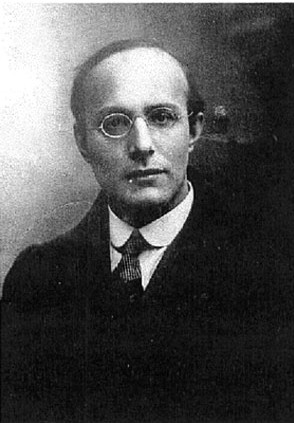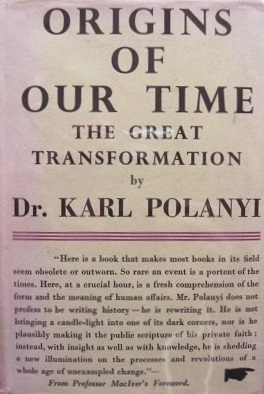Related Research Articles

Neoclassical economics is an approach to economics in which the production, consumption, and valuation (pricing) of goods and services are observed as driven by the supply and demand model. According to this line of thought, the value of a good or service is determined through a hypothetical maximization of utility by income-constrained individuals and of profits by firms facing production costs and employing available information and factors of production. This approach has often been justified by appealing to rational choice theory.

Political economy is a branch of political science and economics studying economic systems and their governance by political systems. Widely studied phenomena within the discipline are systems such as labour markets and financial markets, as well as phenomena such as growth, distribution, inequality, and trade, and how these are shaped by institutions, laws, and government policy. Originating in the 18th century, it is the precursor to the modern discipline of economics. Political economy in its modern form is considered an interdisciplinary field, drawing on theory from both political science and modern economics.

Public choice, or public choice theory, is "the use of economic tools to deal with traditional problems of political science." It includes the study of political behavior. In political science, it is the subset of positive political theory that studies self-interested agents and their interactions, which can be represented in a number of ways—using standard constrained utility maximization, game theory, or decision theory. It is the origin and intellectual foundation of contemporary work in political economics.
The term Homo economicus, or economic man, is the portrayal of humans as agents who are consistently rational and narrowly self-interested, and who pursue their subjectively defined ends optimally. It is a wordplay on Homo sapiens, used in some economic theories and in pedagogy.
Economic anthropology is a field that attempts to explain human economic behavior in its widest historic, geographic and cultural scope. It is an amalgamation of economics and anthropology. It is practiced by anthropologists and has a complex relationship with the discipline of economics, of which it is highly critical. Its origins as a sub-field of anthropology began with work by the Polish founder of anthropology Bronislaw Malinowski and the French Marcel Mauss on the nature of reciprocity as an alternative to market exchange. For the most part, studies in economic anthropology focus on exchange.
Rebellion is a violent uprising against one's government. A rebel is a person who engages in a rebellion. A rebel group is a consciously coordinated group that seeks to gain political control over an entire state or a portion of a state. A rebellion is often caused by political, religious, or social grievances that originate from a perceived inequality or marginalization. Rebellion comes from Latin re and bellum, and in Lockian philosophy refers to the responsibility of the people to overthrow unjust government.
Neo institutionalism is an approach to the study of institutions that focuses on the constraining and enabling effects of formal and informal rules on the behavior of individuals and groups. New institutionalism traditionally encompasses three major strands: sociological institutionalism, rational choice institutionalism, and historical institutionalism. New institutionalism originated in work by sociologist John Meyer published in 1977.

Karl Paul Polanyi was an Austro-Hungarian economic anthropologist, economic sociologist, and politician, best known for his book The Great Transformation, which questions the conceptual validity of self-regulating markets.

Economic sociology is the study of the social cause and effect of various economic phenomena. The field can be broadly divided into a classical period and a contemporary one, known as "new economic sociology".

Embedded liberalism is a term in international political economy for the global economic system and the associated international political orientation as they existed from the end of World War II to the 1970s. The system was set up to support a combination of free trade with the freedom for states to enhance their provision of welfare and to regulate their economies to reduce unemployment. The term was first used by the American political scientist John Ruggie in 1982.

The Great Transformation is a book by Karl Polanyi, a Hungarian political economist. First published in 1944 by Farrar & Rinehart, it deals with the social and political upheavals that took place in England during the rise of the market economy. Polanyi contends that the modern market economy and the modern nation-state should be understood not as discrete elements but as a single human invention, which he calls the "Market Society".
Regulatory economics is the application of law by government or regulatory agencies for various economics-related purposes, including remedying market failure, protecting the environment and economic management.

In economics, a market is a composition of systems, institutions, procedures, social relations or infrastructures whereby parties engage in exchange. While parties may exchange goods and services by barter, most markets rely on sellers offering their goods or services to buyers in exchange for money. It can be said that a market is the process by which the value of goods and services are established. Markets facilitate trade and enable the distribution and allocation of resources in a society. Markets allow any tradeable item to be evaluated and priced. A market emerges more or less spontaneously or may be constructed deliberately by human interaction in order to enable the exchange of rights of services and goods. Markets generally supplant gift economies and are often held in place through rules and customs, such as a booth fee, competitive pricing, and source of goods for sale.
Throughout modern history, a variety of perspectives on capitalism have evolved based on different schools of thought.
Peasant economics is an area of economics in which a wide variety of economic approaches ranging from the neoclassical to the marxist are used to examine the political economy of the peasantry. The defining feature of the peasants are that they are typically seen to be only partly integrated into the market economy -— an economy which, in societies with a significant peasant population, is typically found to have many imperfect, incomplete or missing markets. Peasant economics treats peasants as something different from other farmers as they are not assumed to be simply small profit maximizing farmers; by contrast, peasant economics covers a wide range of different theories of peasant household behavior. These include various assumptions about the maximization of profits, risk aversion, drudgery aversion, and sharecropping. The assumptions, logic, and predictions of these theories are examined and the impact of subsistence is typically found to have important implications in terms of producers decisions about supply, consumption and price. Chayanov was an early proponent of the importance of understanding peasant behaviour arguing that peasants would work as hard as they needed in order to meet their subsistence needs, but had no incentive beyond those needs and therefore would slow and stop working once they were met. This principle, the consumption-labour-balance principle, implies that the peasant household will increase its work until it meets (balances) the needs (consumption) of the household. A possible implication of this view of peasant societies is that they will not develop without some external, added factor. Peasant economics has been seen as being an important area of study by some development economists, agricultural sociologists, and anthropologists.
In economics and economic sociology, embeddedness refers to the degree to which economic activity is constrained by non-economic institutions. The term was created by economic historian Karl Polanyi as part of his substantivist approach. Polanyi argued that in non-market societies there are no pure economic institutions to which formal economic models can be applied. In these cases economic activities such as "provisioning" are "embedded" in non-economic kinship, religious and political institutions. In market societies, in contrast, economic activities have been rationalized, and economic action is "disembedded" from society and able to follow its own distinctive logic, captured in economic modeling. Polanyi's ideas were widely adopted and discussed in anthropology in what has been called the formalist–substantivist debate. Subsequently, the term "embeddedness" was further developed by economic sociologist Mark Granovetter, who argued that even in market societies, economic activity is not as disembedded from society as economic models would suggest.
The opposition between substantivist and formalist economic models was first proposed by Karl Polanyi in his work The Great Transformation (1944).
The socialist mode of production, also known as socialism or communism, is a specific historical phase of economic development and its corresponding set of social relations that emerge from capitalism in the schema of historical materialism within Marxist theory. The Marxist definition of socialism is that of production for use-value, therefore the law of value no longer directs economic activity. Marxist production for use is coordinated through conscious economic planning. According to Marx, distribution of products is based on the principle of "to each according to his needs"; Soviet models often distributed products based on the principle of "to each according to his contribution". The social relations of socialism are characterized by the proletariat effectively controlling the means of production, either through cooperative enterprises or by public ownership or private artisanal tools and self-management. Surplus value goes to the working class and hence society as a whole.
The archaeology of trade and exchange is a sub-discipline of archaeology that identifies how material goods and ideas moved across human populations. The terms “trade” and “exchange” have slightly different connotations: trade focuses on the long-distance circulation of material goods; exchange considers the transfer of persons and ideas.
The economistic fallacy is a concept originated by Karl Polanyi in the 1950s, that refers to fallacious conflation of human economy in general, with its market form. Whereas the former is a necessary component of any society, being the organization through which that society meets its physical wants, i.e. reproduces itself, the latter is a modern institution that is neither autonomous nor stable. The fallacy can occur either by narrowing the genus "economic" to merely market phenomena, or overextending "the market" to encompass all aspects of human economic activity. These moves can be seen as equating the conceptual content of "economics" with what is in fact mere form or ideology, instead of with the substance embodied by the specific decisive relations in which humans are engaged in any given period and locale.
References
- ↑ Polanyi, Karl (1957). "The Economy as Instituted Process". In Dalton, George (ed.). Primitive, Archaic and Modern Economies: Essays of Karl Polanyi. Boston, MA: Beacon Press. pp. 139–174.
- 1 2 Polanyi, Karl. (1944) The Great Transformation: the Political and Economic Origins of Our Time, Farrar and Rinehart, New York
- ↑ Dale, Gareth (2013). "Chapter 5: 'Disembedded' and 'always ebedded' economies". Karl Polanyi: The Limits of the Market. Polity Press. ISBN 9780745658254.